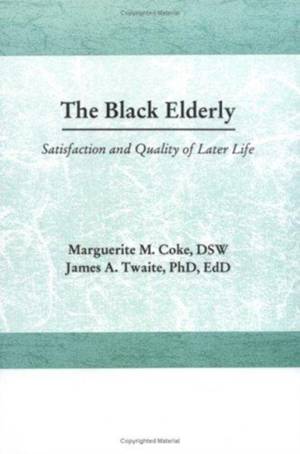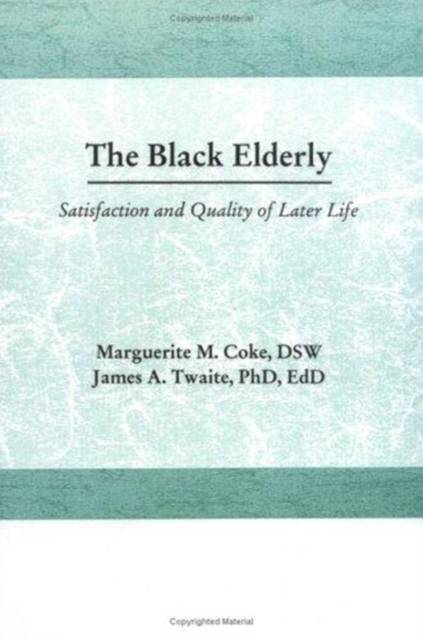
En raison d'une grêve chez bpost, votre commande pourrait être retardée. Vous avez besoin d’un livre rapidement ? Nos magasins vous accueillent à bras ouverts !
- Retrait gratuit dans votre magasin Club
- 7.000.000 titres dans notre catalogue
- Payer en toute sécurité
- Toujours un magasin près de chez vous
En raison de la grêve chez bpost, votre commande pourrait être retardée. Vous avez besoin d’un livre rapidement ? Nos magasins vous accueillent à bras ouverts !
- Retrait gratuit dans votre magasin Club
- 7.000.0000 titres dans notre catalogue
- Payer en toute sécurité
- Toujours un magasin près de chez vous
The Black Elderly
Satisfaction and Quality of Later Life
Carlton Munson, Marguerite Coke, James A Twaite
146,95 €
+ 293 points
Description
In The Black Elderly: Satisfaction and Quality of Later Life, authors Marguerite Coke and James Twaite present the results of an empirical study of factors that influence the well-being of older black Americans. Like all older individuals in industrial nations, elderly blacks are confronted with negative attitudes toward old people. But in spite of their minority status in society, with its economic and social disadvantages, elderly blacks have effective coping strategies for dealing with growing old. It is the success of these coping strategies that the authors reveal to readers and upon which they build recommendations to encourage healthy aging in the black community.Through comprehensive research into the subject, the authors provide readers with a theoretical framework which identifies the variables that are most closely associated with subjective well-being among older Blacks. An empirical test of the model is described and the questionnaire is included.Professionals and scholars in social work, gerontology, African-American studies, and anthropology will find The Black Elderly a positive approach to supporting the elderly black community. Readers with interests in cross-cultural aspects of counseling and gerontology will find much enlightenment in this book with its research and insight on:
- history: overviews West African culture and the role of history in the development of the black American family
- church: analyzes the function and importance of this institution on the black community
- family: explores the importance of family and how it affects life satisfaction
- health: determines how perceived health status affects individuals'feelings of life satisfactionThe authors'findings on the strong and diverse support systems of this group assist professionals, students, and policymakers in better understanding how to continue to effect healthy aging for black Americans. The Black Elderly is of particular interest to social workers, students in social work programs, and professionals who deal with aging persons or the black community and can benefit from historical background knowledge of blacks in this country and how societal institutions affect the well-being of this group.
Spécifications
Parties prenantes
- Auteur(s) :
- Editeur:
Contenu
- Nombre de pages :
- 144
- Langue:
- Anglais
- Collection :
Caractéristiques
- EAN:
- 9781560249146
- Date de parution :
- 31-05-95
- Format:
- Livre relié
- Format numérique:
- Genaaid
- Dimensions :
- 156 mm x 224 mm
- Poids :
- 390 g

Les avis
Nous publions uniquement les avis qui respectent les conditions requises. Consultez nos conditions pour les avis.






